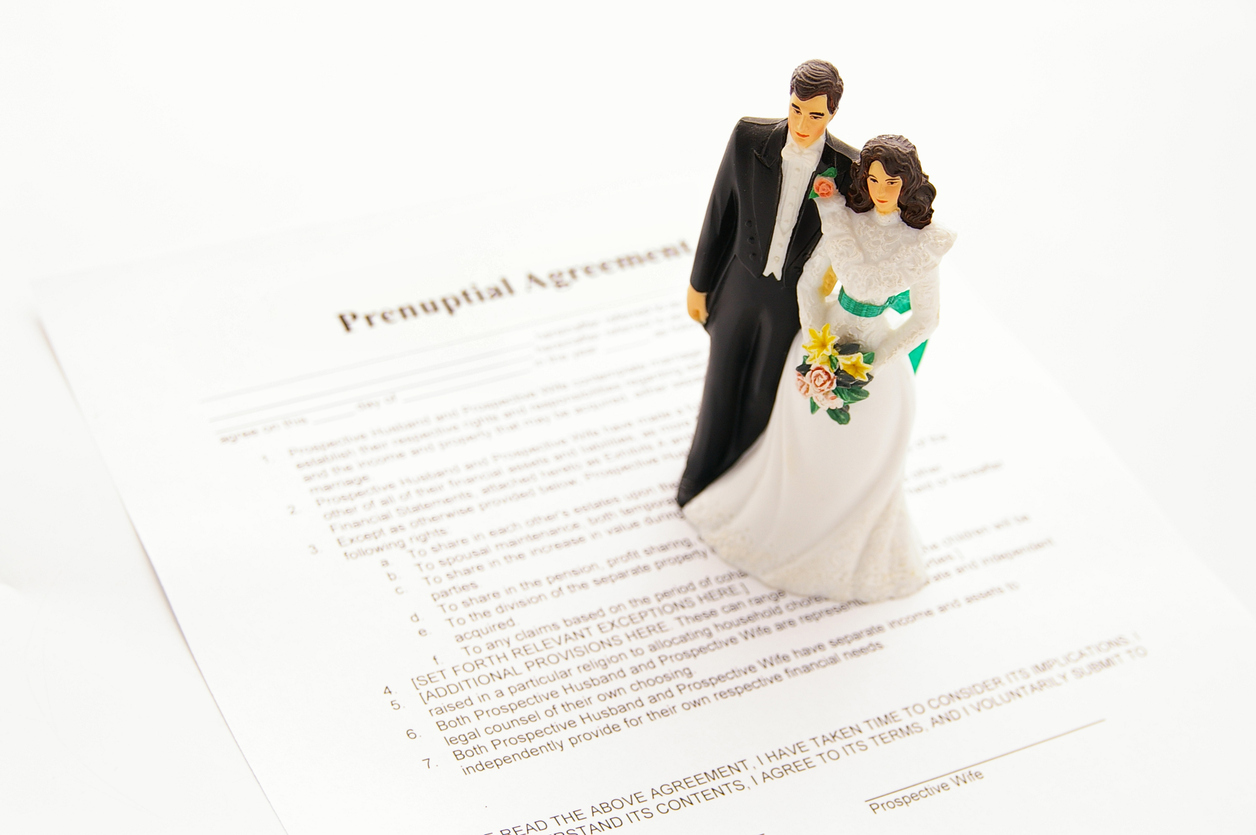Prenuptial Agreements: Should You Go for It?
2017-10-23

The chances of you having heard of prenups are pretty high thanks to plenty of high profile celebrities getting them. It’s not just celebrities who are signing them pre-marriage, however, as more couples are opting for prenuptial agreements before saying “I do”. The perception with prenups are generally made up of two opinions:They’re either totally for it or definitely against it.
Some of you might be wondering, what is a prenup?
Well, a prenuptial agreement (or premarital agreement) is simply a contract a couple signs before marriage. Generally, the contract would stipulate explicit clauses such as separating finances, debt, ownership of properties or living arrangements post-divorce, which both parties must honour and agree upon before saying “I do”.
While prenups are notoriously known for coming into play during divorce, this contract is also used to determine who gets what if a spouse dies.
Yet, prenups cannot determine matters that involve child custody or child support, as it goes against public policy. Legally, the court has the final say in deciding what is best for the child in the likelihood of divorce.

What are the reasons for getting a prenup?
Depending on who you marry, there are a multitude of reasons people get a prenup before marriage:
- The person has been married before and does not want their future spouse to get tangled up in affairs that were related to the previous marriage (e.g. child support)
- The person has children and wants to make sure that the children will be covered if anything were to happen to them.
- The person is much wealthier than the other partner and wants to ensure the protection of their assets.
- The person is in a lot of debt and wants to protect their future spouse from acquiring these debts.
- The person (or both) own businesses of their own.
- The person (or both) want to keep their finances a private matter.
- The person does not work/plans to not work during the marriage, thus he/she will have a financial plan in the likelihood of divorce.
What happens to the prenup if I DO divorce?
While all of us would want to avoid this from happening to our marriage, in the event where divorce does happen, for couples who do not opt for a prenup, then they must follow the law of the land that they live in. Depending on the country/state you both live in, you might have to split everything you own down to half with your ex. Yet, for couples who have signed a prenup before marriage, the court will follow whatever clauses that were stated and agreed upon by the couple beforehand.
What happens to the prenup if I DON’T divorce?
Then, there is nothing to worry about, and that your prenup is just a piece of paper that you will never look at again. The only time you might see it is if you and your partner created clauses that dealt with sad situations such as the death of a spouse, which in the event of their death will stipulate who will get what afterwards.
When it comes prenuptial agreements, proponents of the cause will always argue that in the end, it is done for the interest of both parties in order to prevent costly and time-consuming court battles if the relationship were to dissolve.
Yet, critics have argued that a prenup essentially sows the seeds of a crumbling marriage before it could even begin. Depending on one’s stance regarding this matter, a prenup can either be a valuable asset or a major deal breaker for couples.

Should you get a prenup?
It all depends on you, and you must also remember that if you or your spouse-to-be wants to sign a prenup, it is not an attempt to point fingers at each other saying that one of them is a “gold digger”.
Rather, a prenuptial agreement is simply a contractual agreement that covers both you and your spouse in the likelihood of divorce and death. If you feel unsure about it, talk it out with your spouse and seek counselling help if needed.
Whether you are for it or against it, be truthful to your partner when it comes to situations as such — it’s better to be honest than to tip-toe around such matters for the rest of your marriage.

